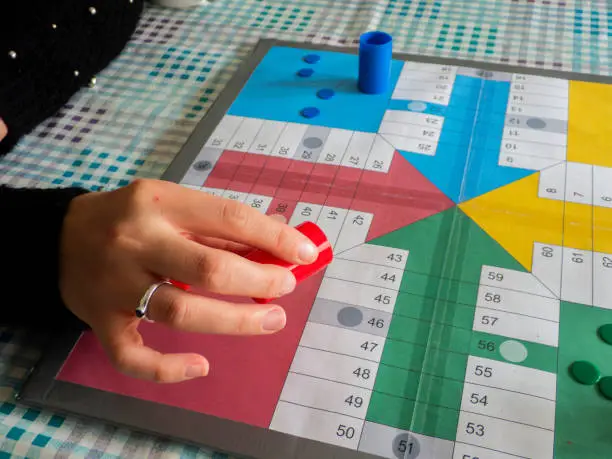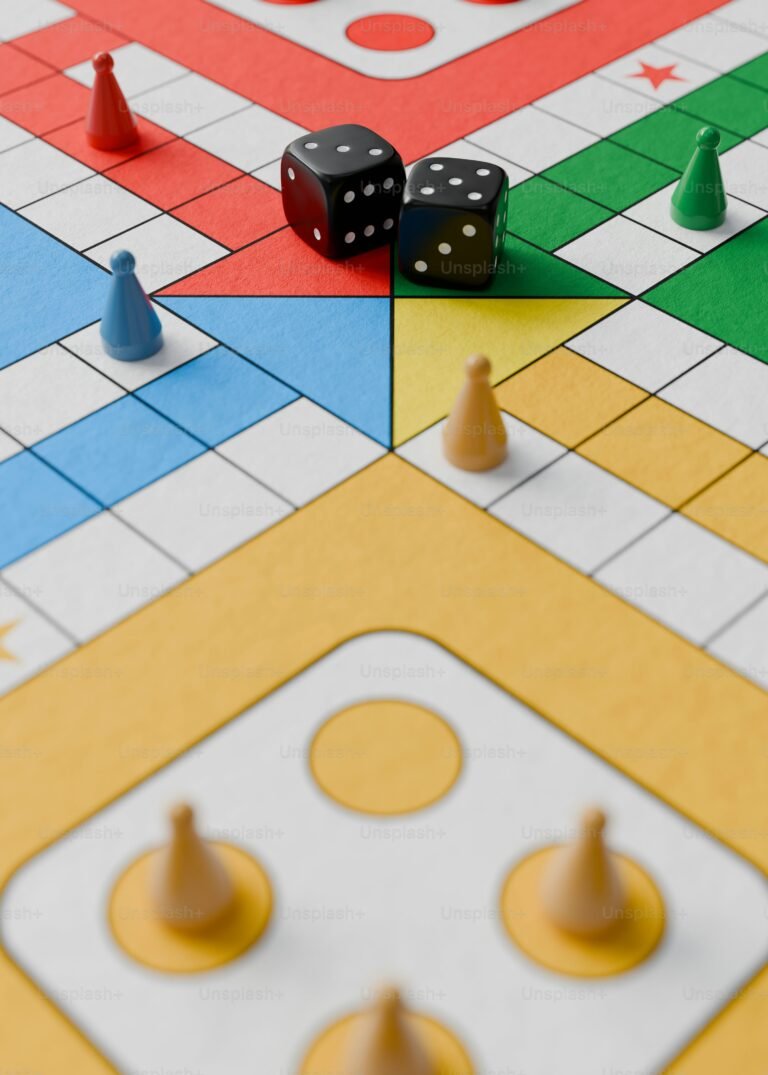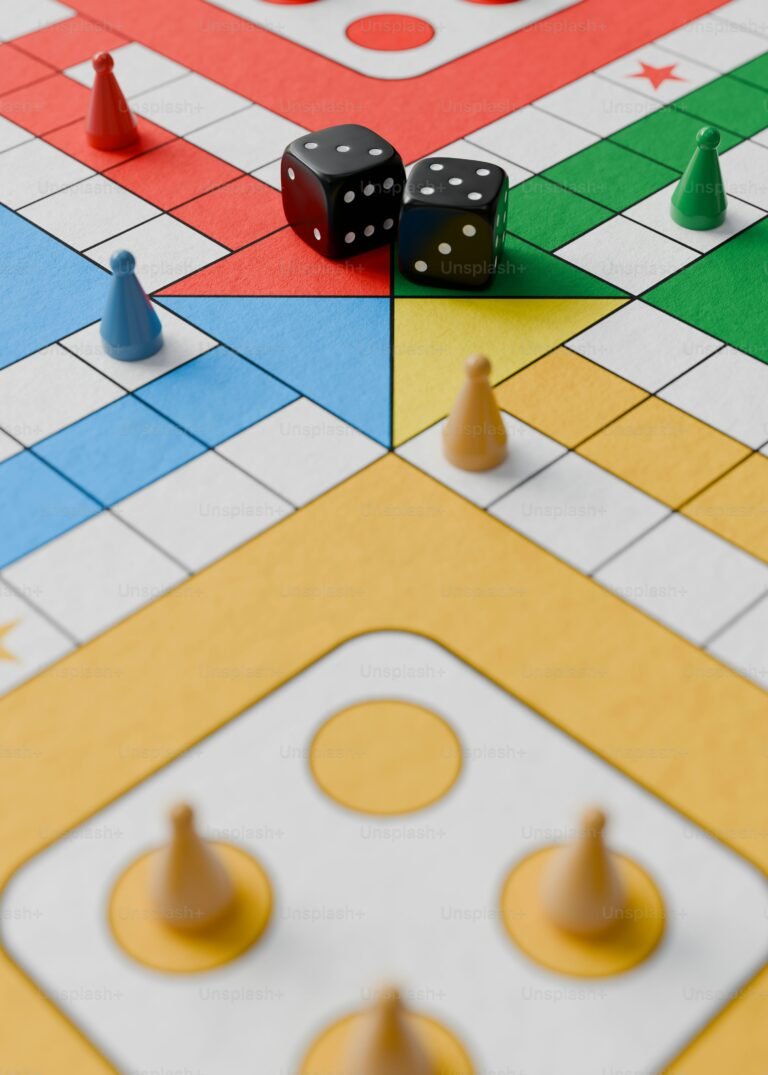
Traditional Ludo Pakistan , a timeless board game, holds a special place in the heart of Pakistan’s culture. Known as Traditional Ludo Pakistan, this game transcends generations, bringing families and friends together in moments of joy, strategy, and friendly competition. Originating from the ancient Indian game Pachisi, Ludo has woven itself into the fabric of Pakistani traditions, evolving into a cherished pastime that reflects the country’s vibrant social and cultural heritage. In this blog post, we’ll explore the history, cultural significance, gameplay, modern adaptations, and tips for enjoying Traditional Ludo Pakistan, optimized for the best online experience at ludo.pk.
The Historical Roots of Traditional Ludo Pakistan
The story of Traditional Ludo Pakistan begins centuries ago with Pachisi, a game played in ancient India as early as the 6th century CE. Pachisi, often referred to as the “royal game,” was played on cloth boards with cowrie shells and tokens, symbolizing strategy and luck. When Pakistan was formed in 1947, many cultural elements, including Pachisi, were carried over by those migrating from India. Over time, this game evolved into the modern Ludo we know today, simplified with a square board and a single die, making it accessible to all ages.
In Pakistan, Traditional Ludo Pakistan became a household staple, especially in rural and urban homes alike. The game’s simplicity, combined with its strategic depth, made it a favorite during family gatherings, festive occasions like Ramadan, and even wedding celebrations. Its enduring popularity lies in its ability to foster connection and create lasting memories, making it a cultural cornerstone that continues to thrive.
Why Traditional Ludo Pakistan Is a Cultural Icon
Traditional Ludo Pakistan is more than just a game; it’s a cultural ritual that strengthens bonds and evokes nostalgia. In Pakistani households, Ludo is synonymous with togetherness. Families gather around the colorful board, rolling dice and strategizing to move their tokens to the finish line. Whether played during Ramadan evenings or casual weekend hangouts, Ludo creates an atmosphere of laughter and camaraderie.
The game’s cultural significance is evident in its role during special occasions. For instance, it’s common to see Ludo boards brought out during wedding festivities, where relatives of all ages engage in friendly matches. This tradition highlights the game’s universal appeal, as it bridges generational gaps, allowing grandparents, parents, and children to share in the fun. The nostalgia associated with Traditional Ludo Pakistan is profound, as many Pakistanis associate the game with childhood memories of playing with siblings or cousins.
Moreover, Ludo’s accessibility makes it a cultural equalizer. Requiring only a board, tokens, and a die, it’s a game that doesn’t demand expensive equipment or complex rules, making it a staple in homes across socioeconomic backgrounds. Websites like ludo.pk have further democratized access by offering digital versions, ensuring that this cultural gem remains relevant in the digital age.
How to Play Traditional Ludo Pakistan
Understanding the rules of Traditional Ludo Pakistan is key to appreciating its charm. The game is typically played by two to four players, each assigned a color (red, blue, green, or yellow) with four tokens. The objective is to move all four tokens from the starting area to the central “home” triangle, following a clockwise path based on die rolls.
Basic Rules of Traditional Ludo Pakistan
- Starting the Game: Each player rolls a die, and a roll of six allows a token to move from the starting area to the board. A six also grants an extra turn.
- Movement: Tokens move clockwise according to the number rolled on the die (1 to 6). Players can choose which token to move if multiple are on the board.
- Capturing Opponents’ Tokens: Landing on a square occupied by an opponent’s token sends it back to their starting area, adding a layer of strategy.
- Safe Squares: Certain squares, often marked with a star, are safe zones where tokens cannot be captured.
- Entering the Home Path: To move a token into the final home triangle, players must roll the exact number needed to reach the entry point.
- Winning: The first player to move all four tokens into the home triangle wins.
In Pakistan, a unique variation of Traditional Ludo Pakistan allows the use of two dice, enabling backward movement and adding strategic complexity. For example, if a player rolls a 1 and a 4, they can move one token 4 steps forward and 1 step backward or split the moves between two tokens. This variation, available on platforms like ludo.pk, enhances the game’s dynamic nature.
Strategies to Master Traditional Ludo Pakistan
While Traditional Ludo Pakistan involves luck due to die rolls, strategic decisions can significantly improve your chances of winning. Here are some tips to elevate your gameplay:
- Prioritize Token Release: Focus on rolling sixes to get all tokens onto the board early, increasing your movement options.
- Spread Your Tokens: Distribute tokens across the board rather than clustering them to minimize the risk of multiple tokens being captured.
- Target Opponents: Strategically position tokens to capture opponents’ tokens, especially those nearing their home path.
- Leverage Safe Zones: Move tokens to safe squares to protect them from being sent back to the start.
- Plan for the Home Stretch: Calculate moves to ensure tokens enter the home path efficiently, avoiding over-rolls that force you to wait for the next turn.
These strategies, combined with the intuitive gameplay offered by ludo.pk, make Traditional Ludo Pakistan both engaging and competitive.
The Digital Evolution of Traditional Ludo Pakistan
In recent years, Traditional Ludo Pakistan has embraced the digital era, with online platforms like ludo.pk bringing the game to a global audience. Digital versions retain the core mechanics of the traditional game while introducing exciting features like multiplayer modes, vibrant themes, and real-time matches against players worldwide. These platforms have made Ludo accessible anytime, anywhere, allowing players to connect with friends or compete with strangers from the comfort of their devices.
Online Ludo also introduces variations like quick matches and reward-based systems, adding a modern twist to the classic game. For example, ludo.pk offers a seamless interface where players can enjoy Traditional Ludo Pakistan with customizable boards and dice, enhancing the visual and interactive experience. The rise of mobile apps has further popularized Ludo, with nearly 79% of online players hailing from the Indian subcontinent, including Pakistan.
Why Play Traditional Ludo Pakistan Today?
Traditional Ludo Pakistan remains a beloved game because it combines simplicity, strategy, and social connection. Whether played on a physical board during family gatherings or online via ludo.pk, Ludo continues to captivate players of all ages. Its cultural significance as a symbol of unity and nostalgia ensures its place in Pakistani households, while its digital adaptations keep it relevant in the modern world.
For those looking to experience Traditional Ludo Pakistan, visit ludo.pk to explore both classic and innovative versions of the game. Whether you’re a seasoned player or new to Ludo, the platform offers an immersive experience that celebrates this timeless tradition. Roll the dice, strategize your moves, and join the millions who cherish Traditional Traditional Ludo Pakistan of fun and connection.



